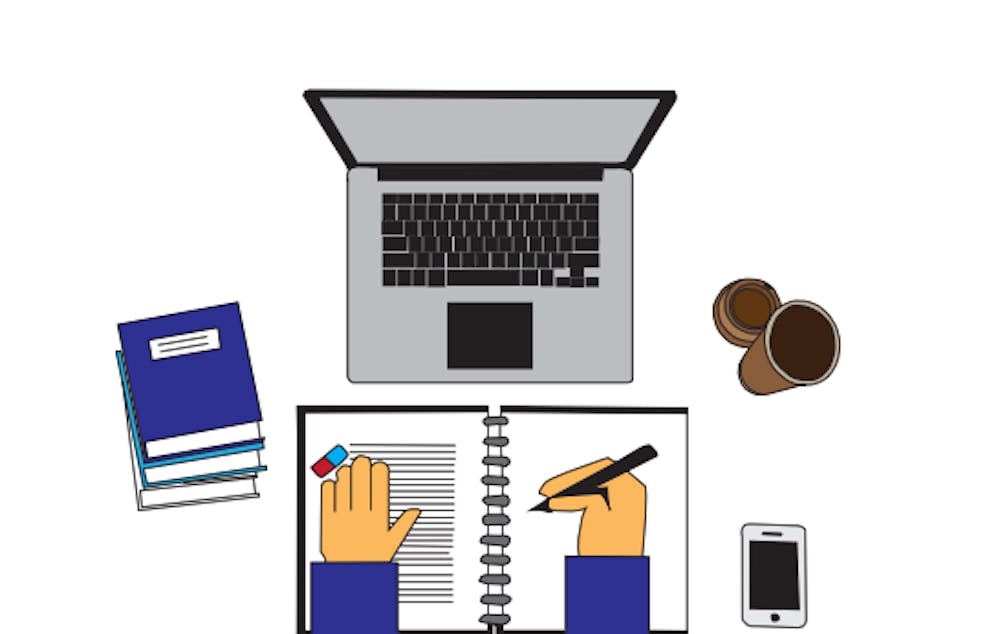Being in the United States and dealing with the educational system is really something. Back home in Brazil, it’s completely different. As someone who finished high school in Brazil nearly a year ago but also spent a semester studying for the SATs, I can safely I am a strong admirer of the American way.
Firstly, in the U.S. there is no country-level educational system or curriculum. That means each of the 50 states has its own department of education that decides how it would like to spend tax money and how public schools will be organized.In Brazil it is up to the national government to establish the general guidelines and skills that will be taught in elementary school.
Our basic — or elementary — school system kind of sucks. Our government actually believes it will solve all of our educational problems by changing or improving universities instead of worrying about the preschoolers. The truth is if you want to make productive and self-aware adults for the future, you need to start with today’s youngest minds.
Then there is what I believe is the most important issue in Brazil — high schools. Some of the best high schools in Brazil are private, and some of the worst are public.In the U.S., from what I’ve learned, there are some amazing public schools with amazing and inspirational teachers.
Also, in American high schools there is some sort of freedom to decide what classes you take, and you can start building your future career before even getting to college. Teenagers still have to take general requirement classes, like English, math and social sciences, but also have the freedom to choose between electives that may include art, journalism or even a cooking class.
I believe giving high schoolers the opportunity to control their academic future is a way of making them into adults who know how to deal with important choices.
In Brazil, I had to take 13 to 15 courses every week that were already set up for me to take. I had absolutely no choice whatsoever about what I was spending my time studying. I always knew I wanted to get a degree in journalism but never got the chance to develop the skill in school. Instead, I was extremely frustrated being stuck in a classroom at 7 a.m. taking a chemistry class.
That only happens because our testing system is so exclusive. Our universities apparently prefer those students who know how to memorize formulas and recall dates than people who actually think critically. Our national exams are a giant ranking system based on test scores, and that’s how the universities get to choose who gets in and who doesn’t.
I participated in the national exams and got into a university in Brazil using that system, which I consider unfair, but I also participated in the U.S. system. I was lucky enough to have lived in a Brazilian city that had an American high school and was able to take the SATs. Also, I was lucky enough to have a friend — thanks, Tiago — to lend me an official SAT book so I could study.
After I began surrounding myself with this different educational system, I realized that it would be a longer process than the one I had anticipated.The U.S. system required proficiency exams, extracurricular experience and a letter of recommendation.It was a process that lasted more than two years.
In the end, I realized in the U.S. people think of their education as a long-term investment. You need to go through high school thinking about the college you’d like to go and go through college thinking about your career. Also, the universities choose the student based on accomplishments in addition to their grades.
In Brazil, you are a number. Either you make it or you don’t.
After comparing these two different but somewhat similar systems, I suggest we turn to a new one that may or may not be the solution.
Since 1976, in Portugal, a school system called Escola da Ponte has been in use.
In this school, students have complete control over their curricula and what they would like to learn until middle school. It is organized through teamwork and autonomy methods. It is a system that does not divide classes in age or grades but in levels of knowledge. In that way, students are allowed to learn at their own pace.
They do not follow a lecture prepared by their teacher but can choose the way in which they learn the best and adapt their curricula through that technique. People should be allowed to do that. After all, no two brains are the same.
It seems all around the world people are coming up with new methods of teaching and learning, because the current educational system is extremely outdated. I say that I like the American way of teaching better because, compared to what I had in high school, it allows for much more freedom. Then we see innovations like Escola da Ponte, and it just makes me wonder: Will we eventually evolve to point where school is enjoyable for young people?




